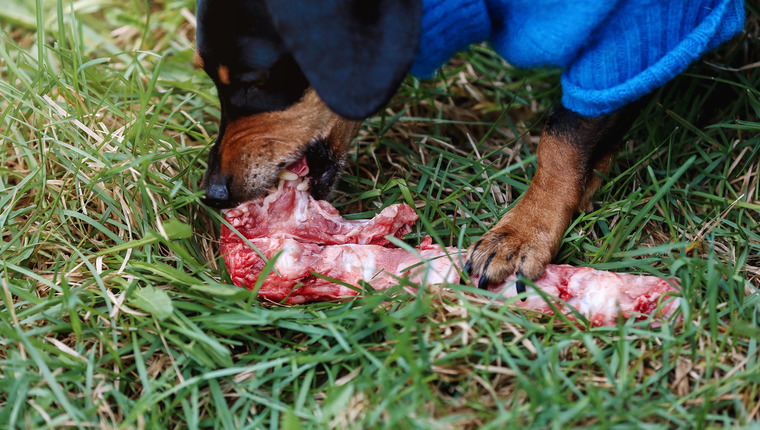
Is lab-grown meat alright for dogs? New studies help us understand why synthetic meat may become an option in the future.
Pet Parenting Is a Growing Environmental Concern
As published in PLOS ONE, one study says the sheer amount of pets in the world—particularly in the United States—is concerning. Alarmingly, the study says that dogs and cats “ constitute about 25–30% of the environmental impacts from animal production in terms of the use of land, water, fossil fuel, phosphate, and biocides.”
“As pet ownership increases in some developing countries,” the study continues, “pet ownership will compound the environmental impacts of human dietary choices.” In conclusion, the study recommends “simultaneous industry-wide efforts to reduce overfeeding,” including alternative protein sources.
According to another report, the global pet food industry creates more greenhouse emissions than entire countries. That same report also says every year an area twice the size of the UK is used to produce pet food. As Dr. Peter Alexander of the University of Edinburgh says, “ The feeding of companion animals plays a role in environmental change. This is a topic that has been previously overlooked, but…should be considered alongside other actions to reduce climate change.”
Lab-Grown Meat and Other Alternatives
As dog parents, we want our pets to have the best quality food. However, it’s important to recognize the need to adjust all our diets, including our dogs’. So what options are there?
As the BBC reports, Two biotech firms, Agronomics and Roslin Technologies, are already growing lab-grown chicken meat. The process starts with stem cells which are fed nutrients in a laboratory. Amazingly, the novel technique produces actual meat without any livestock. Additionally, production is sustainable, since the stem cell stock is “infinitely renewing.”
Prof Jacqui Matthews, former chief scientific officer for Roslin Technologies, says, “Cultivated meat provides the option to feed cats and dogs animal material-based diets without the ethical and environmental implications associated with feeding them traditional meat.” Contrastingly, while vegan dog food bypasses the need for animal protein, it usually has synthetic compounds instead.
Regardless, the fact is that as humans adapt to climate change, so will our dogs. That being the case, we should keep our dogs in mind when considering how to change our diets.









